Manslaughter
If you or a loved one has been charged with manslaughter in North Dakota and are wondering what you need to know or how to proceed, this is the resource for you. This article aims to help by outlining the penalties, what happens if you plead guilty, and how to get help with your case.
Table of contents
Manslaughter in North Dakota
Negligence vs. Recklessness
Penalties
What To Do If You’ve Been Charged
Manslaughter Defenses
Manslaughter in North Dakota
The phrase “manslaughter” may sound like it refers to an accident, but it actually refers to an unlawful killing that was neither premeditated nor carried out with malice aforethought. Manslaughter charges in North Dakota are filed under specific circumstances. Below, we will look at the definitions of both types of manslaughter, as well as the consequences a person can expect if convicted.
Unlike Minnesota, North Dakota does not have multiple manslaughter degrees, like voluntary and involuntary. The North Dakota Century Code outlines manslaughter charges and the penalties in section 12.1-16-02.
Under North Dakota law, the crimes of manslaughter and negligent homicide are very close in their definitions:
Manslaughter: A person is guilty of manslaughter if they recklessly cause the death of another human being.
Negligent Homicide: A person is guilty of negligent homicide if they negligently caused the death of another human being.
Negligence vs. Recklessness
Now, these two terms seem very similar at first glance. However, if you’re charged with manslaughter in North Dakota, the difference between these terms could cost you 5 years of your life.
Why?
Because in North Dakota, manslaughter and negligent homicide are so closely defined and vary only in their use of the words negligence and recklessness.
Being charged with negligent homicide is a Class C felony and has a penalty of up to 5 years in prison whereas manslaughter, which is a Class B felony, has a penalty of up to 10 years in prison.
Negligence: When someone behaves negligently, it is because they acted in a way where a reasonable person could understand that there was a risk of injury or harm to another person. The negligent party does not have to know with certainty that their conduct would cause injury, merely that it could.
Reckless: When a person is reckless, they are aware that there is a significant possibility that someone could be hurt as a result of their actions, but they continue to behave in that manner regardless of the risks to others. The danger is so high that it differs from what a reasonable individual obeying the law would do.
In order for a prosecutor to prove that you were "reckless" or "without regard for human life," he or she must be able to establish beyond a reasonable doubt that you knew your conduct was dangerous but went ahead with it anyway.
Manslaughter Penalties in North Dakota
Manslaughter charges in North Dakota carry a maximum penalty of 10 years in prison and a $20,000 fine.
What to do if you or a loved one has been charged with manslaughter in North Dakota
Being charged with a crime like manslaughter can be overwhelming and life changing. You may feel as though you’re in a bad dream you can’t wake up from.
We have over 50 years of criminal defense experience. We know firsthand what it’s like to be facing charges, be scared for your future, and needing somebody on your side who truly understands the law, how it works, and how to defend you so that you can face your case with confidence.
If you or a loved one is arrested for manslaughter, the most important thing you can do is remain silent.
We cannot stress this enough.
Law enforcement agencies are not looking out for you. They are not on your side, and they will not give you a deal if you cooperate. Even if you’re innocent, things you say can be misunderstood and can put you in real danger. Tell any law enforcement agent that you don’t want to speak unless you have an attorney present.
Next, hire an attorney ASAP. If you have been charged with manslaughter, it is especially important that you hire an attorney. An experienced attorney will be able to tell you what type of charges you are facing and what your options are going forward. They will also be able to help defend against the charges and ensure that your rights are protected throughout the process.
The Most common defenses against a manslaughter charge
When someone is charged with manslaughter, it's clear that the prosecutor has narrowed the charge from murder.
This is a sign that they don't have enough evidence for a murder conviction, but it does not necessarily mean that you will be acquitted. A charge of manslaughter doesn't mean that the act was accidental or "unintentional." It only means that the prosecution does not have enough evidence to prove the charge of malice aforethought and premeditation. However, they still believe they can prove that you acted recklessly.
The prosecutor has several options in proving manslaughter. S/he can try prove that you acted with criminal negligence (not knowing or caring about what you were doing) by showing that you were under the influence of an intoxicating substance such as alcohol or drugs.
S/he can also try to show that you committed an unlawful act that creates a high probability of death or great bodily harm.
Finally, s/he can try show that you committed an unlawful act which created a high degree of probability that someone would be killed and showed a conscious disregard for human life.
Defense strategies are largely dependent on the details of the case itself and include:
Self-defense: If an individual acted in self-defense, they were protecting themselves from physical harm or death.
Medical emergency: The accused believed they were acting in good faith when they were helping the victim in an emergency situation.
Mistaken identity: The defendant might have thought someone else was committing a crime, which led them to respond inappropriately.
Accidental killing: The homicide happened as the result of an accident. This defense might not fully exonerate you, but it could reduce the charge to a negligent homicide.
Schedule a free consultation
Email: assistant@ringstromlaw.com
Tel: 218-284-0484
730 Center Ave #202
Moorhead, MN 56560

